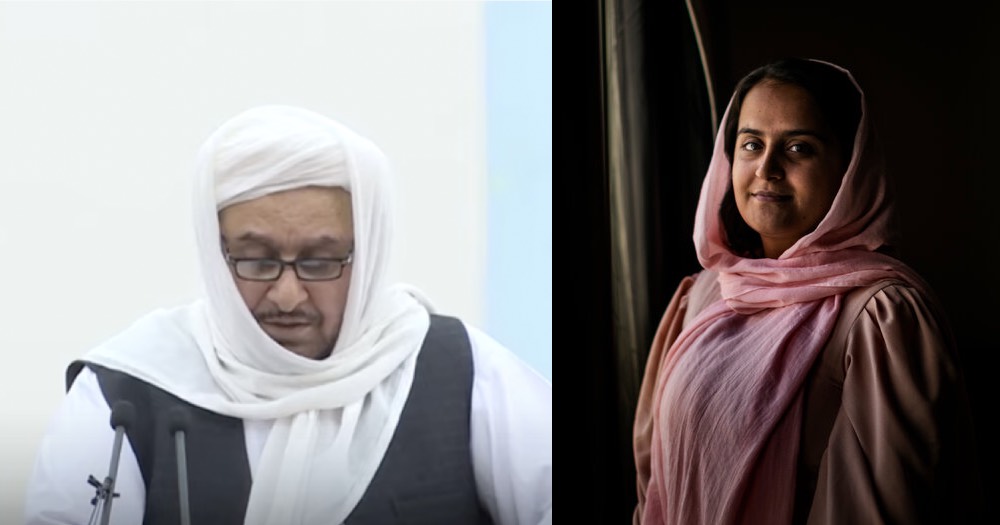Follow us on Telegram for the latest updates: https://t.me/mothershipsg
The Higher Education Minister of the Taliban, Abdul Baqi Haqqani, announced on Aug. 29 that women will be allowed to study at universities in Afghanistan, albeit in separate classes from men, France 24 reported.
Girls and boys will also study in different classes in primary and secondary schools, a policy that has been reportedly common in Afghanistan.
Since its recent takeover, the Taliban have also pledged to respect women's rights within the norms of Islam, though public sentiments remain pessimistic of women's rights under the Taliban's rule, according to the Associated Press (AP).
In the Taliban's previous rule, girls and women were not allowed to attend schools, the Financial Times reported.
Haqqani outlines Taliban's education policy
Speaking at a meeting with the elders of the Taliban, Haqqani said, "The people of Afghanistan will continue their higher education in the light of Sharia law in safety without being in a mixed male and female environment," France 24 reported.
He added that the Taliban want to "create a reasonable and Islamic curriculum" that is in line with Islamic, national and historical values, while also being able to compete with other countries.
Afghan news channel TOLOnews reported that Haqqani also promised a safe educational environment for women.
Though the group had publicly pledged to respect women's rights, it remains unclear whether women can work, study, and socialise with their male peers.
Contrasting public sentiments
Despite their promises, however, many women are sceptical of the Taliban's intentions.
In an article published by The Guardian, an Afghan undergraduate in Kabul expressed her fears and worries.
Also a former English teacher, she expressed her sadness when thinking about the future of her students, and said she was worried she could become a "slave" under Taliban's rule.
Meanwhile, Beheshta Arghand, the female Afghan reporter who made history by interviewing a senior Taliban representative on air, has reportedly fled the country, as per CNN.
A few days after, Arghand interviewed Malala Yousafzai, the activist who survived Taliban's assassination.
Arghand's company, TOLO, said that it was the first time Malala has ever been interviewed on Afghan television.
In communications with CNN, Arghand said she left her country in fear of the Taliban, "like millions of (other) people".
Reports from The Guardian also indicate that some women have been prevented from going to school and banned from leaving their homes without a male escort, in regions controlled by the Taliban.
During Taliban's previous rule, women were not allowed to go to school and work, and punishments like stoning were also implemented.
Follow and listen to our podcast here
Top image via AFP/Youtube & @KennethRoth/Twitter
If you like what you read, follow us on Facebook, Instagram, Twitter and Telegram to get the latest updates.
